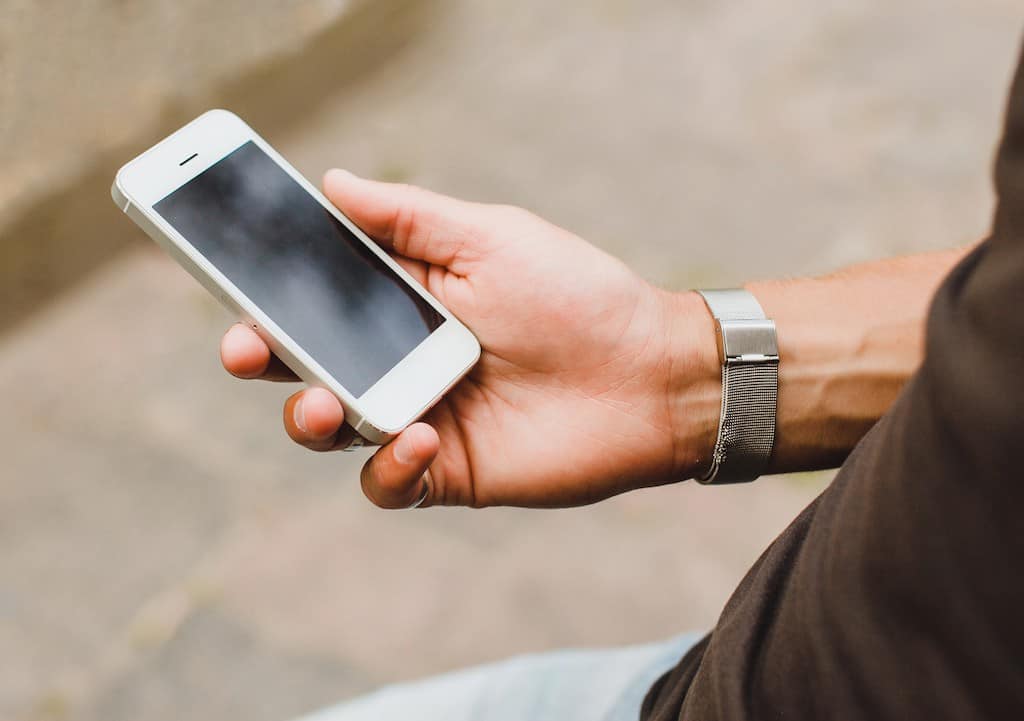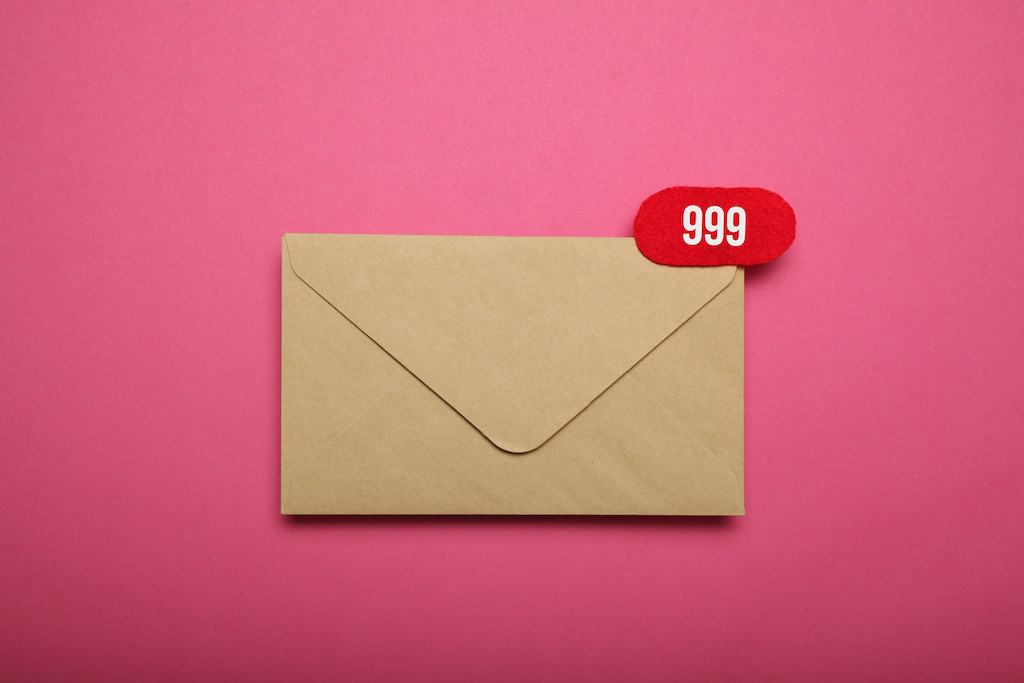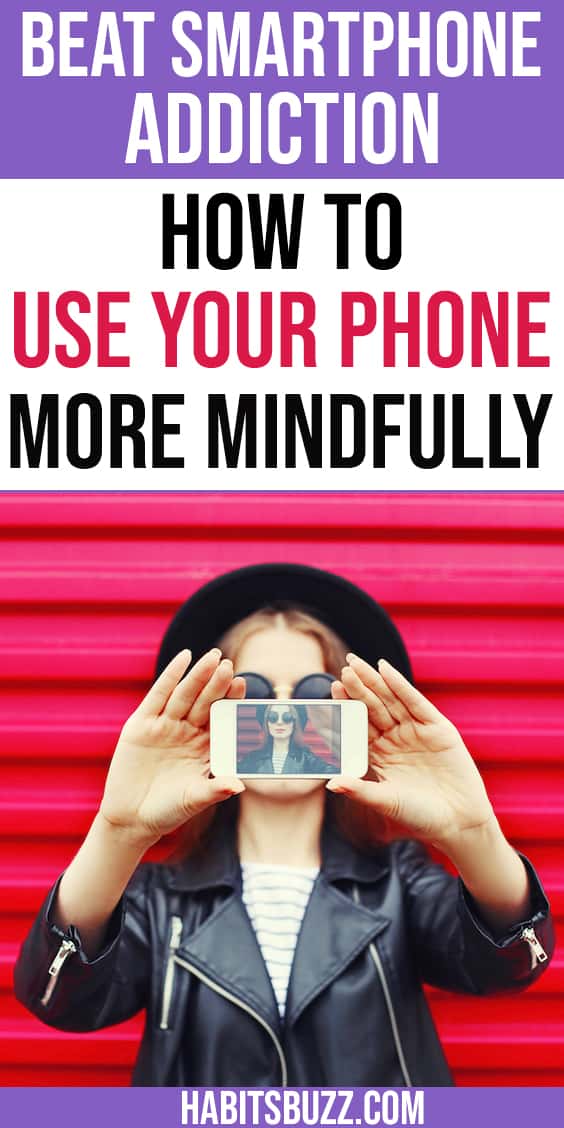Beat smartphone addiction: How to use your phone more mindfully
On January 9, 2007, Steve Jobs unveiled the first iPhone ever.
“ A revolutionary mobile phone” and a “breakthrough internet communications device” were the words he said about the device that he proudly introduced to the world.
His words can’t be truer, right? This invention changed our lives forever.
Our lives became faster and easier.
Steve Jobs passed away on October 5, 2011. And if he were alive today, I doubt if he would be entirely happy with the way his invention revolutionized the world.
Don’t get me wrong. I love my smartphone and how it has made my life better.
But the smartphone revolution brought with it a new set of problems that were non-existent twelve years ago.
WHAT ARE THE SIDE EFFECTS OF SMARTPHONE ADDICTION?
- We are more impatient than ever because we want everything to materialize in seconds. Even a one-minute ad on Youtube is unbearable and we leave a web page if it doesn’t load within seconds.
- We don’t know what boredom is because we try to fill every second of our life with mindless scrolling. As a result, our creativity suffers because being able to sit still in contemplation is necessary to engage our creative brains.
- The smartphone addiction has reduced the time we spend with family. In other words, constant connectivity has in a way led to more disconnectivity. Our relationships suffer due to the less quality time we spend with family. A common sight is, husband and wife, lying beside each other scrolling on their phones without talking to each other; parents and children do the same too. Another common sight is a child talking to its parent and the parent is busy scrolling on the phone, not even looking up. These seemingly tiny things are taking a toll on our relationships, creating a distance from the people we love.
- Smartphones decrease our attention span and so we more distracted than ever because of the need to unlock the phone “just to check” new notifications and messages. And we go from app to app for that familiar dopamine rush that comes with new content. This affects our ability to dedicate time for “deep work” to produce our masterpieces. Geniuses like Albert Einstein, Leonardo Da Vinci, and many others, are said to have spent time alone in solitude with undeterred concentration to make the most use of their creative brains.
- The generation born after when the smartphone revolution began is getting lesser chances to play outdoors and interact with children of their age. Outdoor play helps children to develop physically, mentally and emotionally.
- Health problems connected to the increased use of smartphones are on the rise. Nomophobia (addiction to smartphones), depression, anxiety, physical pains associated with wrong postures, eye vision problems, etc.
In short, our days have changed and it is revolving more around a device. Recently, I heard something of the sort, “When phones became wire-free, humans became chained”. So true, right?

How to avoid using the phone too much?
The change is alarming and we can expect more and more people to get addicted to smartphones in the future as companies compete with each other to sell more affordable phones.
And also, wifi is being made accessible everywhere including on Mount Everest and even in space!
We know that technology is not all bad. What we need might not be ditching smartphones altogether and use the old dumbphones (yes, they are called dumb now). But it is a personal preference if you want to return to them at all.
If your smartphone is doing tasks that make your day go more smoothly, chances are you will want to keep using it.
What we need is to not let smartphones take over our days. And to “set boundaries” so that we have a healthy relationship with our phone. And a healthier relationship with the world around us.
So, how can we use our smartphones more mindfully?
Let’s see how to do that.
1. Ask mindful questions
Most of the time, grabbing the phone and unlocking it happens unconsciously. It happens because it is a habit. If an action is repeated x number of times over a period of time, it becomes automatic for you.
For example, before the invention of smartphones, you wouldn’t grab your old Nokia phone immediately after waking up or before going to sleep. You used it only when you wanted to make a phone call or text people.
So in order to break the phone addiction habit, you need to become more mindful of your use. There are apps that help you to track your phone usage and track how many times you unlock the phone in a day (see point#3).
If you are a phone addict, you will be amazed by the number of times you pick your phone daily.
To stop the automatic behavior, start practicing mindfulness. Next time onwards, when you feel the urge to unlock the phone, start paying attention to the action and ask questions. Like,
- Why am I unlocking the phone now?
- Is it out of habit or do I need to check something?
- Does it matter if I don’t check that app right now? Instead of falling into the rabbit hole, how can I make use of my time in a better way now?
And control the urge and do what your mind tells you to do to spend time wisely.
Like, reading that book which you have been meaning to get to for days, or play a game with your kids, or make that dish you “didn’t have time” to prepare.
To break a habit, you need to replace it with a better habit. In this case, replace it with the habits that can make you equally happy. Ask these questions daily, And slowly, reduce phone usage day by day.

2. Enable grayscale mode
Smartphones are designed to be addictive. For social media companies and app developers, “more attention means more money”.
So they design their apps in a way that it’s hard for us to stop scrolling once we are pulled in.
If you have noticed, you can see that there’s no endpoint in apps like Instagram, Facebook, Youtube, etc. You can scroll endlessly and if you are done, you can also pull to refresh. Then more content comes in. It is all designed considering the user’s psychology in mind.
It gives users a sense of control and the companies are able to make them stay longer on their apps.
Even the logos are designed to catch our attention when we open the phone. Facebook, Instagram, Pinterest, Youtube, etc, use the bright and attention-catching colors for a reason.
Therefore, to reduce the appeal of these logos, games and social media, it’s recommended to enable grayscale mode on your smartphone.
I have tried this and I didn’t feel like using social media or even my phone much because it is downright boring.
If you are a phone addict, try enabling grayscale on your phone to reduce phone usage. Keep it that way until you break up with the addiction.
Read the following articles for instructions to turn on grayscale mode.
3. Make your home screen basic
Make your home screen basic by removing addictive apps from the home screen. Keep only the icons for phone calls, messages, calendars, etc, on the home screen and make it boring.
And turn off push notifications for the addictive apps. Or better yet, delete those apps (see point#6).
Have you ever thought why the notification bubbles are always in red color? Red is being deliberately used to catch your attention and make it seem like an emergency.
You become curious when you see it and you want to know what it is. All the addictive apps are designed to keep you stay longer and want to come back frequently, with the help of behavioral scientists.

I use an app called “SPACE” in which I can turn off all the incoming notifications when I turn on the button called “FOCUS”. I can then keep the internet on if I am using it for any purpose without the distractions of emails or other notifications.
Talking about apps, they help a lot in tracking your usage. Which takes me to the next point.
4. Use apps to track phone usage
It may seem ironic that while some apps make us addicts, other apps are released to measure how much addiction we have.
Unless you don’t install a tracking app, you may not have an idea about how much time you are spending on your phone. I was amazed to find out that I spend 5-7 hours daily on my phone. Well, I used to…
Now I have been able to reduce the time to 1-2 hours, which I need to because I work online and I need to use the phone to get work done.
If you are an iPhone user, you have a built-in app called Screen Time to track your usage. In addition to tracking, if you want to lock certain apps after x minutes of usage, you can do so too.
Other apps that can track phone usage are-
- RescueTime
- Stayfree (Android only)
- Space
- Moment
Tracking the usage helps in being aware of the wasted time that you could have used for something productive. Make it a habit to look at your stats every day and take conscious efforts to bring it down as much as you can.
Like any addiction, you can get withdrawal symptoms. But please know that overcoming this addiction is not impossible.
And there is another app I use and love. It is called“Flipd”. I think I paid a small amount for a year. It lets us block all the apps and put the phone on focus mode.
You can start a session and set a timer for how long you want this app to block all the other apps. You cannot access any other app when you have this turned on, except for the basic functions like making phone calls, sending text messages, etc.
It is a great way to lock yourself out of your phone to get some productive work done.
5. set boundaries
The reason I am not ditching my smartphone entirely is that it’s useful and it serves a lot of functions for me.
I find the following benefits in using a smartphone.
- Being able to be in touch with my family and friends who are abroad
- I learn a lot about my passions and get nuggets of wisdom from my favorite bloggers through social media
- Using my phone, I can go through the online courses I have purchased during my free time. I try to use all the free time for learning, so learning can happen in a doctor’s waiting room too.
- Maps to help me navigate when I travel
- The ability to do online transactions instantly
- The ease of buying things online – everything, from books to grocery- and the benefits of using coupon apps (saves a lot of time and money)
- I sometimes rely on online taxi services like Uber to go from point A to point B.
- Listen to podcasts while driving
These are the benefits I can think of now. For you, it could be different reasons. But smartphones definitely make our lives easier.
I know many people who prefer not to buy a smartphone or stop using altogether. It depends upon your priorities.
For me, mindful use of smartphone means, trying to find a balance between smartphone use and real life. So to achieve the balance, the only thing that works for me is setting self-imposed limits.
That is, make use of all the benefits you can get from it, but still not be its slave.
How is that possible? Or is it even possible?
I won’t say it’s impossible. But it takes a lot of effort from our side. It’s like walking on a rope where on the right side is your offline life, and on the left side, your online life.
You don’t want to fall into the left side because it’s hard to get out of it.
So to achieve the balance, you have to set self-imposed limits and stick to them no matter what.
For example,
- I love learning from my favorite bloggers who use Instagram to build their brand. I have set the limit of 30 minutes on Instagram for daily usage. That’s enough for me to learn and if I go more than that I know I am wasting time.
- Decide a time at which you will check your phone in the morning and a time at which you will lock it and put it away at night. If you ask me, it’s better not to touch your phone in the morning because that can waste your precious productive morning hours. So, set your limits according to what works for you.
- You can establish rules like no phone in the bed, no phone when you are with kids, no phone during meal times, etc.

6. DELETE, Unfollow, unsubscribe
You could be subscribed to a zillion newsletters or be following hundreds of people on Instagram.
Are they all providing value to you? Or are you just following them out of FOMO (fear of missing out)? I do a periodic purge when it comes to these media.
I keep my absolute favorite ones and if some of them have pivoted directions or are not providing the value I expected, I unsubscribe(or unfollow). This helps me to save a lot of time.
Another question you need to ask yourself is whether all the apps on your phone are giving you value. Do a purge and keep only the apps that are worth your time and energy, and delete everything else.
I used to have FOMO, but I know that I only have limited time and brain capacity to learn. There are many people out there teaching the same things, but I don’t need to follow all of them. So I keep only my favorites.
To combat FOMO, I tell myself that if learning a new info was absolutely important for my growth, it will find a way to reach me no matter what. And I truly believe in that.
7. Do smartphone fasting at least once a week
Conquer your FOMO by making your weekend, or any other chosen day, social media free (or phone free).
By doing this “letting go” act, you will be rewiring your brain to live without your phone. And you will learn that the sky will not fall down if you are not constantly connected.
It is fasting for your mind. Make sure to use the extra free time wisely. Maybe it will help you to motivate to go phone-free on more days.
And also, try leaving your phone at home when you go out with family. And enjoy full connection and more hearty conversations without the distractive notifications of your smartphone.
Let’s make a change. And at the same time, teach the next generation about the mindful use of smartphones too. Because your kids are also constantly watching you and learning these habits unconsciously.
So, what are your thoughts on beating smartphone addiction? What strategy has worked for you in reducing phone usage? Let me know in the comments below!
More reading:
Like this post? Please take a moment to PIN and SHARE!








